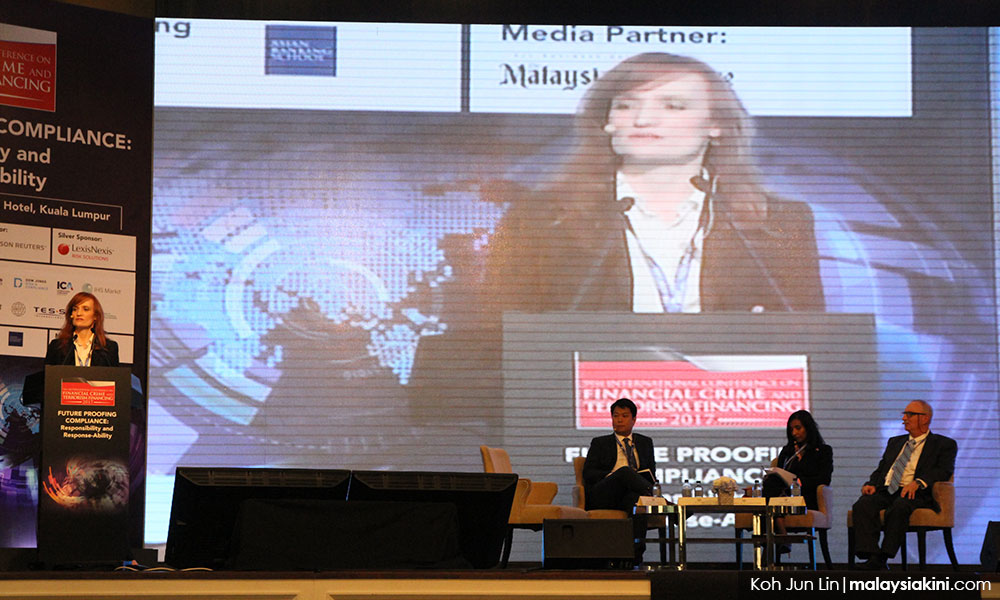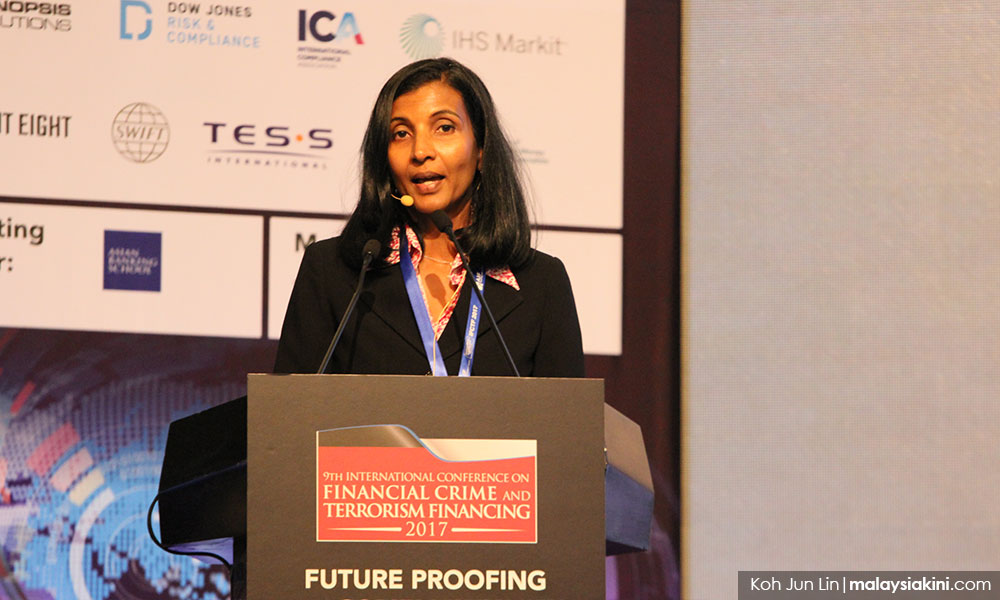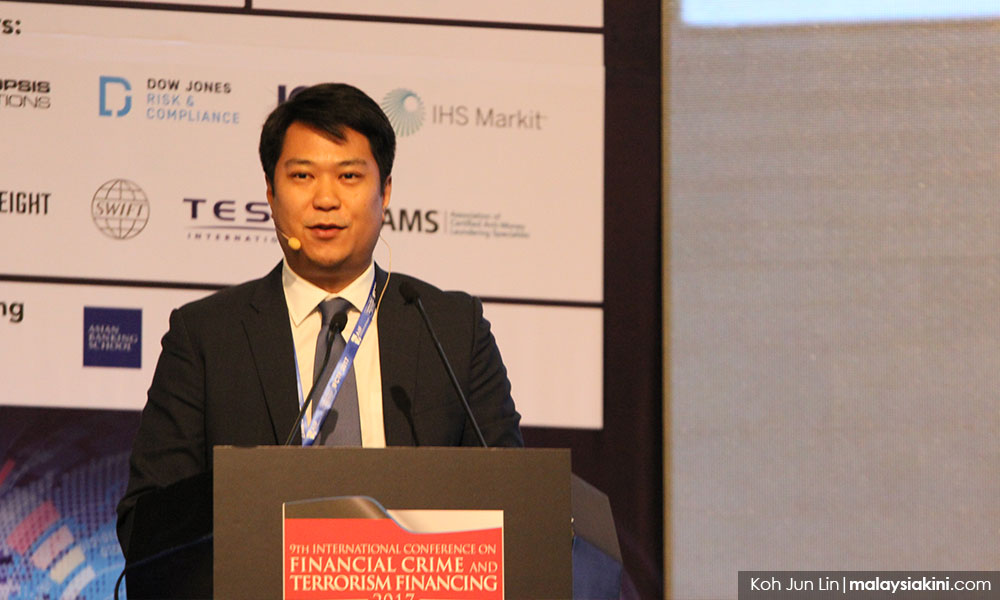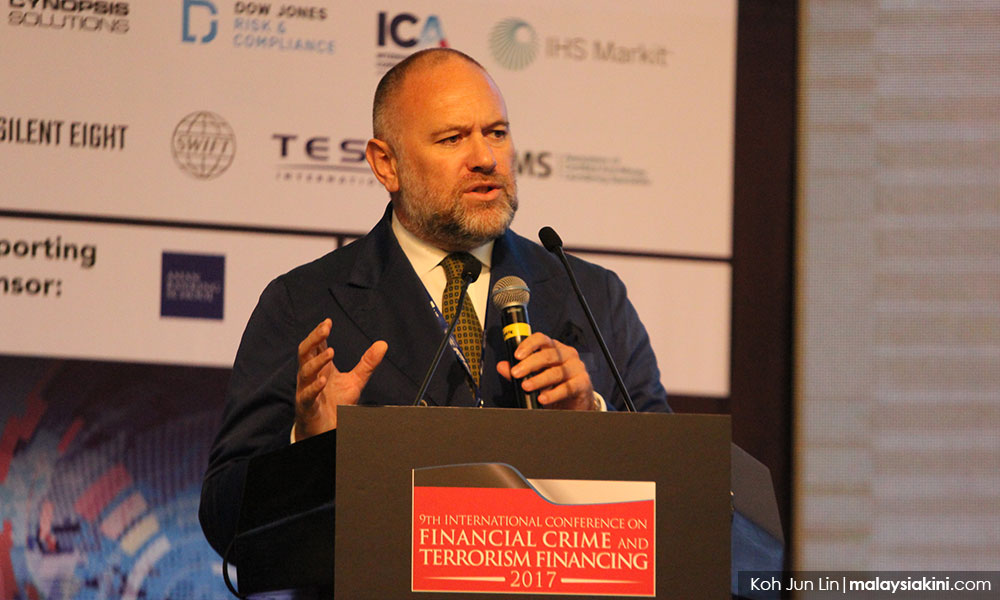
Several competing legal requirements are making it difficult for potential whistleblowers to report money laundering, according to lawyer Selvamalar Alagaratnam.
“It is very difficult for someone who becomes aware of suspects of money laundering to sometimes do the right thing because you have laws that get in the way, which make a person wonder whether or not he or she should report this or alert someone,” Selvamalar told a conference held in Kuala Lumpur yesterday.
She said these include the Financial Services Act 2013, (FSA), which prevents the sharing of banking information; and the Personal Data Protection Act 2012 (PDPA), which impedes the sharing of information.
In addition, there is also the Official Secrets Act 1972, which she said had already been used to prosecute whistleblowers.
Although Malaysia also has the Whistleblower Protection Act 2010 to protect whistleblowers, a closer read would reveal that this only applies to whistleblowers who report suspected crimes to government regulators and no one else.

“So, if you tip off a lawyer because you know the lawyer would do that right thing - not that lawyers always do the right thing, but we hope that he or she would - or if you tip off the press because that is the most common thing; you want the press to take and run with it, expose it… when you do something like that, you are not protected under the Whistleblower (Protection) Act,” Selvamalar (photo) said.
She added that Malaysia has the Mutual Assistance in Criminal Matters Act 2002, which provides for cooperation with foreign countries to combat crime.
“Funnily enough, domestically, we don’t have a principle or an overriding law that says that if the purpose is really to combat crime, then certain sections of the relevant statutes should not take precedence.
“We should have something that allows the PDPA sections to be put aside when there is a higher aim. But that is lacking,” Selvamalar said.
The other impediments
Other impediments include the use of the Printing Press and Publications Act 1984 and the Communications and Multimedia Act 1998 to suppress the media, and concern that regulators are not independent and are instead connected to politically exposed persons (PEPs).
Selvamalar was speaking as a panellist at a plenary session at the International Conference on Financial Crime and Terrorism Financing, titled ‘PEPs Spotlight: Kleptocracy and International Money Laundering’.
PEPs generally refer to senior politicians and public officials, including senior executives of state-owned corporations, as well as their associates and family members.
Financial regulations of many jurisdictions worldwide, including Malaysia, would require financial institutions to identify such persons among their customers and subject them to extra scrutiny to deter money laundering.
Financial institutions may, for example, require extra documentation

Another panellist, the head of customer risk (Asia) at Thompson Reuters, BC Tan (photo), said there are about 1,320 ‘primary PEPs’ in Malaysia, meaning the office-bearers themselves.
However, on average, each would have 4.3 immediate family members, 6.5 extended family members and 8.6 close friends, Tan said, who may qualify as secondary PEPs. The total numbers of PEPs come to about 42,000.
He said this large number of people take significant effort to screen under existing rules. However, of this large number, only a small number would turn out to be corrupt and these are usually those in a primary PEP’s ‘outer circle’.
“We have always thought of (screening PEPs) from a very tick-the-box perspective. We go down the list, we look at the seniority of the PEP, which sometimes is not the best indicator.
“We always think that the more senior the person is, the higher the corruption risk is. I’d beg to differ: The highest corruption cases in China are actually governors and mayors from the smallest cities,” Tan said.
He argued that the database-based approach for screening potential bank customers are inadequate and banks therefore need to gather intelligence, like law enforcement agencies do.
However, the founder of one such database argued, in an earlier talk at the conference, that anti-money laundering measures are failing because banks rely on passports to identify their potential customers.

David Leppan, who founded World-Check and has since sold the company, pointed out that millions of stolen passports are reported to the Interpol each year, and even blank passports have been stolen.
These documents are then bought and sold on hidden online marketplaces in the Dark Web.
Leppan advocated for the widespread use of facial recognition technology to identify potential customers instead, and argued that these can even be used in conjunction with security cameras to identify suspected terrorists and persons subject to international sanctions, even if they were merely casing the bank outside its premises.
Meanwhile, to a question on how a bank can turn away a prominent PEP without fear of ‘ramifications’ Selvamalar said this would come down to enforcement.
“Anyone can deny anything if they think they can get away with it. It comes down to enforcement. If they are pretty confident that it is going to be business as usual (for the bank), it is easy to put out a denial (to the PEP),” she said.- Mkini



[Download] $12,234 in 2 months GAMBLING Robot?
ReplyDeleteLet me say it straight.
I dont care about sports. Shame on me but I dont even know the soccer rules.
I tried EVERYTHING from FOREX & stocks to internet marketing and affiliate products.. I even made some money but then blew it all when the stock market went south.
I think I finally found it. Check It Out Today!!!